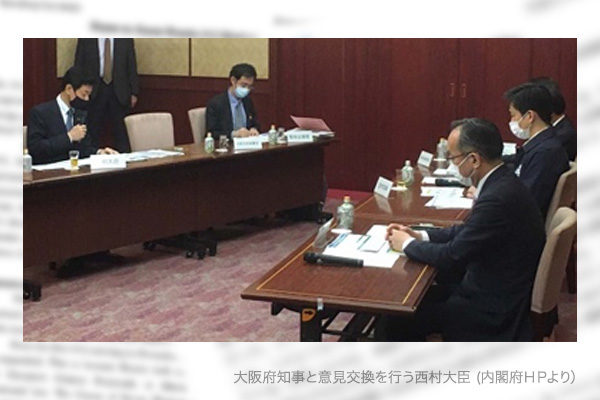The year 2020, an annus horribilis of the Wuhan virus, is ending in about 20 days. During the year, media have continued to make fear-fueling reports, leading people to believe the novel coronavirus disease originating from the southern Chinese city of Wuhan as scaring. The time has come to cool down and reconsider countermeasures.
The supply-demand balance for intensive care unit (ICU) beds has reportedly become tight. Some medical facilities filled with critically ill patients might have got into serious trouble. Given that standards for using ICU beds and ventilators vary by facility and doctor, however, it is not advisable to depend only on the number of seriously ill patients and that of available ICU beds in deciding whether to call the current situation a healthcare collapse across the board. We should finely categorize ICU patients and analyze and monitor categories subject to a tight supply-demand balance for healthcare.
The balance for conventional hospital beds may easily become tight as asymptomatic patients and others with personal reasons are hospitalized. It is impossible to hospitalize all infected people. We have to reconsider the flow of patients to hospitalize only those who highly need treatment.
Medical organizations should get rid of excess fear
Excess infection prevention measures or operational regulations might have exerted overpressure on medical staffs at hospitals that accept Wuhan virus patients. It is important to coolly reconsider the current measures once again.
Amid the widespread pandemic, that only designated hospitals accept coronavirus outpatients and inpatients might have led to tense healthcare fronts. Febrile and lightly infected patients should be subjected to treatment by town doctors. Town clinics should proceed to antigen tests that quickly and easily produce results even though with some misses. If town doctors can follow up infected patients’ home care, hotel care could be terminated and seriously ill patients could quickly be discovered.
Excessive media reports have led town doctors to become overly fearful of the coronavirus disease, increasing pressure on hospitals. I want the Japan Medical Association that brings town doctors together to correct this trend rather than criticizing the government.
Japanese should move forward with their characteristics
As the number of coronavirus infections increases, media noisily call for restricting human travel and imposing a voluntary ban on restaurants. But the shrinkage of economic activity is fatal for a nation. The government should not weaken initiatives to invigorate the economy. No country in the world has successfully controlled the pandemic without restricting human travel. But there are cases where temporary and geographically limited lockdowns have effectively put the pandemic under control.
Unlike Western countries, however, Japan cannot legally take compulsory actions and the Japanese people do not make light of infection prevention measures. I believe we can take actions that fit characteristics of Japan and its people --- repeating geographically limited, temporary, and moderate restrictions against the backdrop of high compliance with infection prevention measures while trying to invigorate the economy.
I want the Suga administration will clearly present such policy so that the country can unite to move forward.
Hisashi Matsumoto is a professor at Nippon Medical School.


